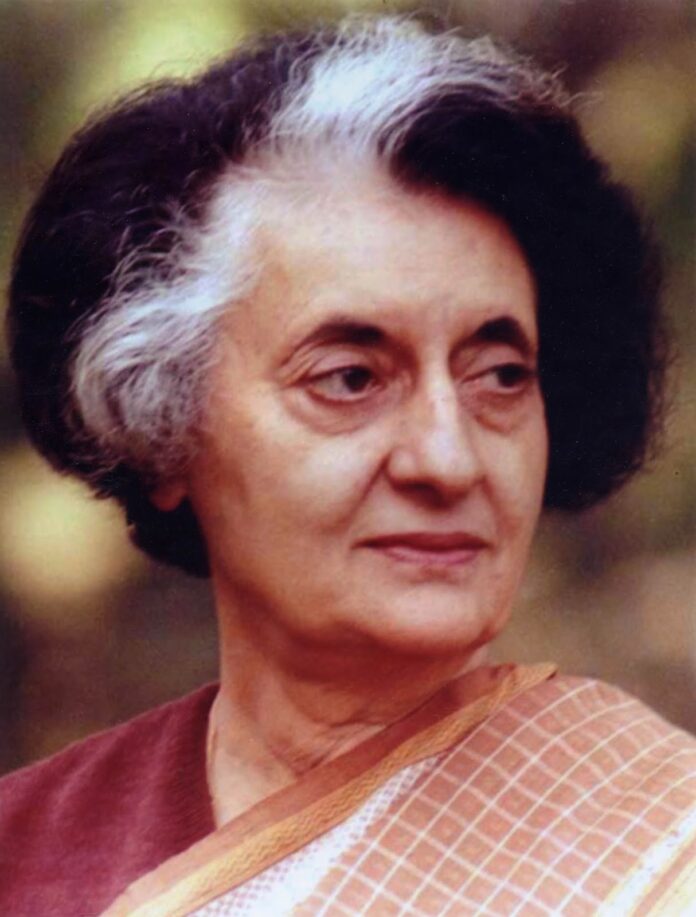Outrage as Float Depicts Indira Gandhi’s Assassination at Parade Commemorating Operation Bluestar Anniversary in Canada A parade commemorating the 39th anniversary of Operation Bluestar in the Greater Toronto Area has stirred controversy and sparked condemnation as a float prominently depicted the assassination of former Prime Minister Indira Gandhi. The Indian high commission in Ottawa swiftly expressed its displeasure to the Canadian government regarding the insensitive portrayal of the tragic event. The float in question featured figures of Indira Gandhi and her assassins, accompanied by a sign referencing the storming of the Golden Temple, stating it was “Revenge for Attack on Shri Darbar Sahib.”
Officials familiar with the matter confirmed that the Indian high commission forwarded a note expressing their strong disapproval to Global Affairs Canada, the Canadian foreign ministry. The depiction of Indira Gandhi’s assassination at a public parade marking the anniversary of Operation Bluestar was deemed unacceptable by Indian authorities. An Indian official, speaking on condition of anonymity, criticized the float, stating that it crossed the boundaries of freedom of expression and glorified the assassination of a democratic leader.
Controversial Float Depicting Indira Gandhi’s Assassination Sparks Outrage and Strains India-Canada Relations
Canadian high commissioner to India, Cameron Mackay, echoed the sentiment of the Indian officials, expressing his shock and condemnation of the event. In a tweet, Mackay stated, “I am appalled by reports of an event in Canada that celebrated the assassination of late Indian Prime Minister Indira Gandhi. There is no place in Canada for hate or for the glorification of violence. I categorically condemn these activities.”
The depiction of Indira Gandhi‘s assassination has significant implications for the relationship between India and Canada. A second Indian official highlighted the recent statement by Jody Thomas, the Canadian prime minister’s national security and intelligence advisor, listing India as one of the top sources of foreign interference. The official warned that these developments, along with Thomas’s statement, could have adverse repercussions on bilateral ties.
Thomas had mentioned India, along with Russia and Iran, as state actors and non-state proxies involved in foreign interference. However, the third Indian official emphasized that India, as a fellow democratic nation, does not interfere in the internal politics of other countries. The official expressed concern that by associating India with authoritarian states, the positive momentum developed in the relationship, especially following Union Commerce Minister Piyush Goyal’s successful visit to Canada, could be undermined.
The controversy surrounding the float depicting Indira Gandhi’s assassination has brought attention to the larger issue of foreign interference in Canadian politics. The Canadian public has been concerned about alleged Chinese interference in the 2019 and 2021 federal elections, which has dominated the country’s political landscape.
Amidst the tensions, the National Alliance of Indo-Canadians stressed the importance of distinguishing genuine grievances and concerns of citizens from foreign interference. They highlighted the challenges faced by the Indo-Canadian community, including marginalization, racism, and religious bigotry in their daily lives.
The Float Depicting Indira Gandhi’s Assassination: A Reminder of the Importance of Cultural Sensitivity and Diplomatic Dialogue
Brampton-based journalist Balraj Deol drew attention to the float and questioned its alignment with Canada’s Indo-Pacific strategy. Deol’s tweet raised the broader question of whether such a float, depicting the murder of a former Indian prime minister by her Sikh bodyguards, aligns with Canada’s diplomatic objectives.
The controversy surrounding the float depicting Indira c assassination highlights the sensitivities associated with historical events and the need for respectful commemoration. It serves as a reminder of the importance of fostering mutual understanding and dialogue between nations to strengthen bilateral relations and maintain cultural harmony.
The incident involving the float depicting Indira Gandhi’s assassination serves as a stark reminder of the need for cultural sensitivity and respect for historical events. Commemorations should aim to foster understanding and dialogue rather than perpetuate hate or glorify violence. Such incidents have the potential to strain diplomatic relations and undermine the positive momentum between nations.
The Indian high commission’s note expressing displeasure to the Canadian government signifies the importance India places on preserving the memory and legacy of its leaders. Indira Gandhi, as a former prime minister, played a significant role in shaping India’s history and her assassination remains a tragic event etched in the nation’s collective memory.
Freedom of expression is a cherished value in democratic societies, but it is essential to draw a line where it infringes upon the dignity of individuals or glorifies violence. In this case, the portrayal of Indira Gandhi’s assassination at a public parade raises concerns about the impact such depictions can have on societal harmony and the potential to incite hatred or resentment.
The condemnation of the event by the Canadian high commissioner to India reflects the shared sentiment that there is no place for hate or violence glorification in Canada. It emphasizes the importance of upholding values of inclusivity, respect, and cultural understanding.
The issue also brings attention to the broader context of foreign interference in Canadian politics. While concerns about foreign interference are valid, it is crucial to differentiate between the actions of foreign entities and the grievances of communities within Canada. Blurring these lines can lead to unintended consequences, undermining relationships between countries and creating divisions within societies.
The float’s depiction of Indira Gandhi’s assassination must be viewed in the larger context of building strong and collaborative ties between India and Canada. Both nations have much to gain from mutually beneficial relationships, whether in trade, cultural exchange, or strategic cooperation. It is imperative to address any misunderstandings or misrepresentations promptly and transparently to ensure the preservation of diplomatic rapport.

